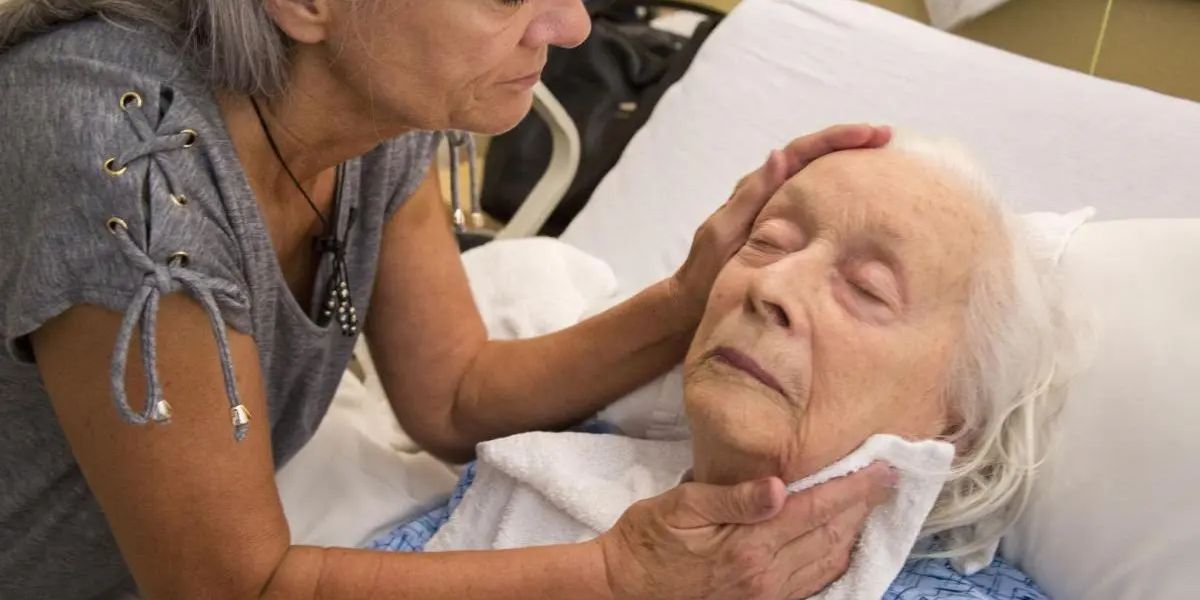MJP –
An Amherst, NY, nursing home that’s been in operation since 1916 is closing its doors after unrelenting financial woes. But it won’t go out without a fight from those who want to see it remain open, possibly with state help.
The Rosa Coplon Living Center on Weinberg Campus will close by Nov. 30, or the date when the last resident is discharged, according to a statement from CEO Robert Wayer Thursday.
The announcement didn’t come completely out of left field.
On Oct. 16, Weinberg employees made headlines as they protested unpaid wages, bounced paychecks and halted health benefits. Company officials admitted they were in serious financial trouble, which would require $15 million to get out of.

And in 2022, a long-planned $47 million sale of the campus to western New York long-term care provider Elderwood fell through. The parties involved attributed the collapse to changes in business priorities stemming from the pandemic. The deal had been in the works since 2017.
With this in mind, some employees still aren’t ready to part ways.
Latest Update! California Sets New Minimum Wage for Health Care Workers: What You Need to Know
A Friday press release announced that Weinberg employees, residents’ families, and elected officials plan to hold a protest today. They’ll be calling for the state’s Department of Health to fund a transfer of ownership to keep the community open, as opposed to simply overseeing and monitoring its closure, as it previously announced.
Protest organizers 1199SEIU, the largest healthcare union in the country, has been working closely with affiliated providers to offer support to employees during uncertainty.
“We [the union] partnered with another provider, Lineage Care Group, which is an association that Weinberg belongs to,” SEIU’s Western NY nursing home division VP, Grace Bogdanove, told McKnight’s Long-Term Care. “We have been really leading the charge at Weinberg in the absence of leadership, particularly over the last six months.”
Weinberg Campus joined Lineage Care Group in February 2023. The alliance includes Niagara Lutheran Health System, along with The GreenFields, continuing care retirement community, and Schofield Care.
The decision to join the group was one that Mayer said he believed would eventually help the company out of monetary turmoil.
“This nonprofit collaboration model provides greater benefits to the residents and community than the for-profit alternative,” Mayer said in March of 2023. “Free of the financial obligation to generate returns for investors, non-profit senior care organizations are able to reinvest their profits into their operations and communities, leading to superior clinical outcomes, more satisfied employees, and enhanced patient and community welfare.”
Yet, Weinberg’s beneath the surface financial challenges persisted, even during negotiations of an 18-month contract voted in by workers that included wage and pension increases.
“When we negotiated our union contract this summer, leadership agreed to the negotiated wage increases and retro payment for workers. They should have been honest and said they weren’t able to fulfill those promises,” Bogdanove said.
The disinvestment tragedy
In a matter of weeks, Rosa Coplon may be added to the list of century-old New York nursing homes that have succumbed to money pressures.
Largely to blame, officials say, are state funding restrictions that have made it hard for providers to find their footing.
Noticable! Examining Indiana’s Health Crisis: The City With the Lowest Life Expectancy
“The situation is a tragedy. What we are seeing is New York’s history of disinvestment in nursing homes rearing its ugly head,” Stephen B. Hanse, president and CEO of NYS Health Facilities Association, told McKnight’s Long-Term Care News. “It is critical for the state to work in partnership with providers and with laborers to resolve this situation.”
In March, state officials proposed a Medicaid reimbursement rate increase that would help to rectify a 16-year funding shortage. But with the increase coinciding with chronic staffing challenges, some say it may be too little, too late.
“The state only funds roughly 75% of the cost of a Medicaid resident in a nursing home, which basically sets nursing homes up for failure,” Hanse said. “When you underfund Medicaid in the face of a long-term care staffing crisis, those two alone are a recipe for closure, and that’s a recipe to limit access to essential, necessary care.”
If the state doesn’t offer a lifeline and the campus does close, SEIU representatives said they will attempt to find employees work elsewhere and expedite healthcare insurance coverage.




